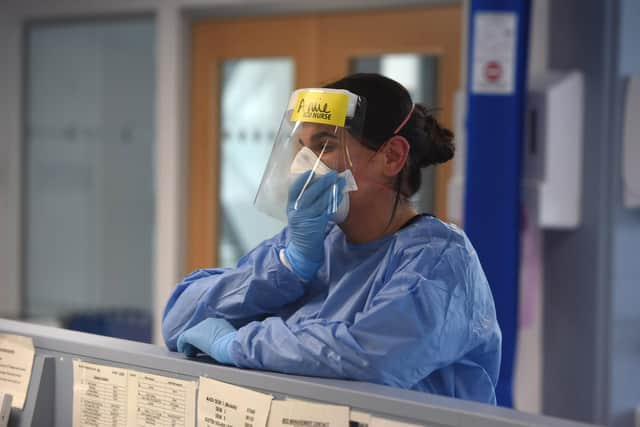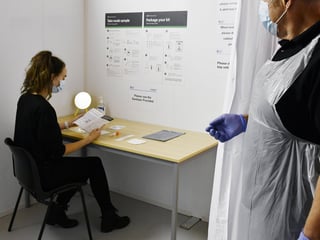Covid lockdown restrictions have to be relaxed 'very slowly', warn scientists
As of Sunday, 566,269 people have received the first dose of the Covid-19 vaccination in Scotland, with 7,794 having received their second dose.
Public Health England's coronavirus strategy chief Dr Susan Hopkins said measures must be eased slowly so "we can clamp down quite fast" if an increase of cases is seen.
Advertisement
Hide AdAdvertisement
Hide AdHer comments came as preliminary research from scientists advising the UK Government suggested a "huge surge in deaths" will only be avoided as restrictions are eased if vaccines have a high uptake and are highly effective at blocking infection and, therefore, transmission.


Academics on the Scientific Pandemic Influenza Group on Modelling (Spi-M) said deaths were only "substantially reduced" under a gradual relaxation scenario if vaccines were able to prevent 85 per cent of infections in vaccinated individuals, rather than just reduce the severity of disease.
Dr Hopkins told the BBC's Andrew Marr Show: "We have learnt, as we did on the first occasion, we have to relax things really quite slowly, so that if cases start to increase we can clamp down quite fast.
"Any releases that we have will have to happen very slowly, very cautiously, watching and waiting as we go, with a two-week period to watch and see the impact of that relaxation because it takes that to see what's happening in the population."
Cabinet minister Liz Truss was asked if social distancing measures may need to last for the rest of the year in response to the research commissioned by Spi-M and worked on by four members of the advisory group.
"I don't want to make predictions about the situation in the autumn, I think it's far too far away," Ms Truss told Sky's Sophy Ridge on Sunday.
The group, from the Warwick University, modelled various scenarios of easing restrictions, known as non-pharmaceutical interventions, or NPIs, alongside how effective existing vaccines prove to be.
"Only vaccines that offer high infection-blocking efficacy with high uptake in the general population allow relaxation of NPIs without a huge surge in deaths," they said in a paper published last week ahead of being peer reviewed.
Advertisement
Hide AdAdvertisement
Hide AdTheir model suggested a gradual relaxation of restrictions beginning in April and ending in the winter only prevents a severe peak if vaccines have 85 per cent infection efficacy.
The model also studied the effects of vaccines having 35 per cent and 60 per cent infection efficacy, and each produced surges when of more than 1,500 deaths per day when restrictions waned.
They accept it is a pessimistic view as behaviour and Government policy would likely to change if relaxations caused the number of hospital admissions to rise again, while they did not examine vaccines having efficacies between those three groups.
The Moderna jab is said to have 94.1 per cent efficacy against Covid-19. Data from Pfizer and BioNTech indicates the vaccine is 95 per cent effective against the disease.
Comments
Want to join the conversation? Please or to comment on this article.
